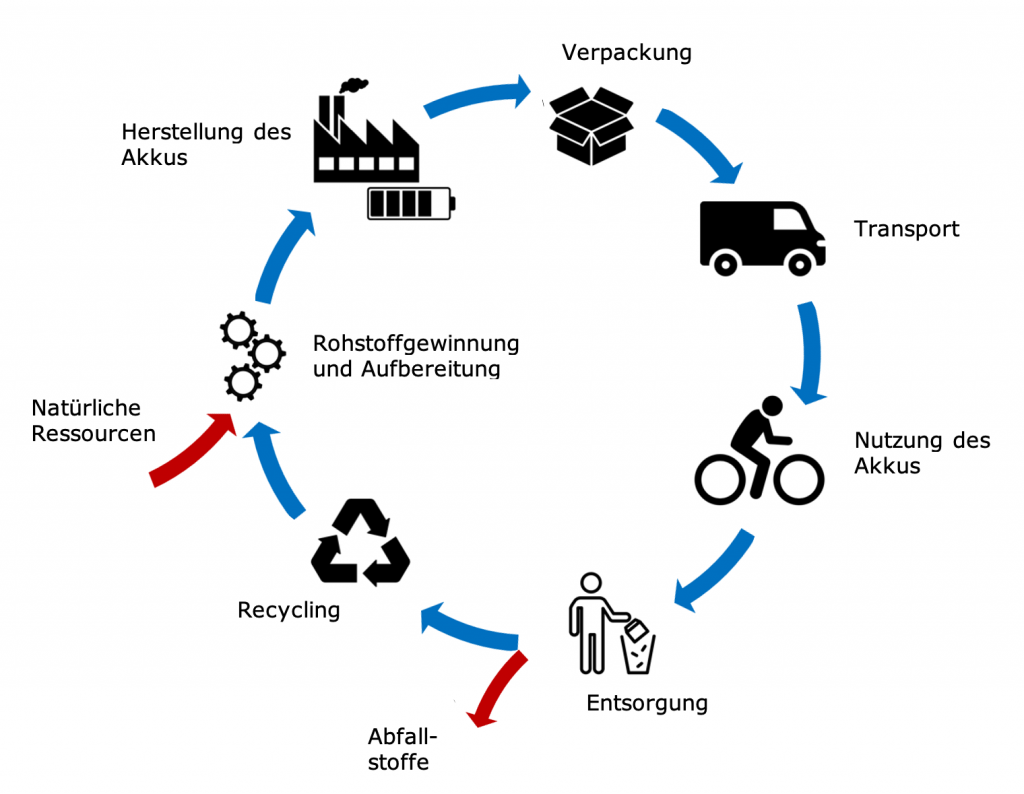Shape a climate-friendly future with us!
In cooperation with the myclimate foundation, it is the goal and aspiration of Akku4bikes.de to eliminate all CO₂ emissions in connection with the use of their e-bikes - and thus to promote measurable climate protection and sustainable development.
MyClimate was founded in 2006 and is one of the quality leaders in voluntary CO₂ compensation measures worldwide.
Emissions are reduced, for example, by replacing fossil energy sources with renewable energies, implementing local reforestation measures with small farmers and implementing energy-efficient technologies.
Every time a battery is purchased in our online shop, we buy a certificate for our customers from Myclimate, which certifies that all CO₂ emissions caused by the batteries have been offset. Our customers receive this certificate together with the battery they have ordered.
Specifically, the CO₂ compensation of Akku4bikes.ch with the reforestation project in the platanares Watershed in the municipality of San Juan de Limay, Nicaragua implemented. Projects will also be supported in the future that address the unacceptable working conditions of the workers in the extraction of raw materials of battery ingredients (such as cobalt).
When determining all CO₂ emissions, the entire life cycle of a battery is considered, from the extraction of raw materials and the manufacture of the battery through packaging, transport and use to disposal.
Within the The Brand the cells, the housing and the electronics of the battery are taken into account. Transport means that the battery must be delivered from the production factory in Switzerland to the customer's doorstep. When it comes to packaging, we make sure to use climate-friendly cardboard and filling material.
Within the use of the battery, the CO₂ emissions occur where the electricity for charging the battery is produced. Assuming a battery life of around 1000 charging cycles and a battery contains around 0.500 kWh of energy, a total of around 500 kWh of electricity produced must be compensated.
The disposal is financially solved in Switzerland in such a way that the disposal fees have to be paid when the battery is purchased (advance disposal fees VEG). This ensures that the battery is properly disposed of at collection points. The recycling of the contents of a battery in turn causes CO2 emissions, which we also offset for our customers' batteries.
In addition, we compensate for all CO2 emissions that occur during the operation of our location with a shop and warehouse.
A problem that cannot be explained away is the raw materials contained in the battery. Cobalt is often mined abroad under unacceptable conditions. Because sustainability on the e-bike also means that people are not deprived of their livelihood in the production of the bikes and parts.
For this reason, we consciously use our compensation payments to finance those myclimate projects that take care of the unacceptable working conditions of the workers in the extraction of raw materials.
Sustainability and e-bikes: do they go together?
Critics of e-bikes rightly accuse e-bike riders that they Stromergeneration and the manufacture and disposal of the battery and the wheels emit emissions.
It is anticipated: E-bikes only save CO2 if when they replace the car. So you use the e-bike sustainably if you use it instead of means of transport with higher emissions. However, if you switch from your previous bicycle rides to an e-bike, it is less sustainable.
We know from surveys: 45 percent of the e-bike kilometers were previously covered by car, 32 percent by bicycle, 7 percent by public transport, and 10 percent not at all. Car replacement was significantly higher among commuters (62 percent versus 18 percent replacing bicycles). Even if the e-bike replaces the conventional bicycle: the savings from replaced car journeys can by far offset the replaced bicycle journeys.
For this one sample calculation: A 500 Wh battery reaches at least 50 km. Of course there is also the Eco mode, which can give you a range of well over 100 km. Conservatively calculated, we get pretty much exactly one kilowatt hour of energy consumption at around 100 km. The e-bike therefore emits around 100 g of CO106 over 2 km. This information is based on the estimated value of CO2 emissions per kWh in the Swiss electricity mix in 2018.
In comparison, a current model of the VW Golf emits 113 g of CO2 per kilometer. That's 100 kg over 11.3 km, more than 100 times as much as the e-bike. And we're talking about a small car here, not a modern SUV. For every 100km of car kilometers saved with a small car, at least around 11kg of CO2 or more are saved. Calculated across all cars, an average car emits 21,5 kg of greenhouse gas emissions per 100 km.
In addition to the CO2 emissions caused by the power consumption, there are also the CO2 emissions from the manufacture and transport of the battery. This is around 40kg for a 3.5kg battery. If, in a simplified comparison, the around 40 kg of greenhouse gas emissions that occur during the manufacture of an e-bike battery are compared with the 21,5 kg of greenhouse gas emissions per 100 km from the car kilometers saved, after around 200 e-bike kilometers offset the greenhouse gas emissions of the battery.”
Conclusion: If you replace the kilometers driven by car with an e-bike, you are already doing a lot for the environment. However, CO2 emissions occur during raw material extraction, manufacture, transport, use and disposal of the battery. If you use our e-bike batteries, the CO2 emissions produced over the entire life cycle of the battery are also neutralized - and you can drive into the future in a climate-neutral manner and with a clear conscience!
The following explanations are partly taken from an article by ebike-news.de with the title mentioned and compared with the data applicable to Switzerland.
Information from myClimate

